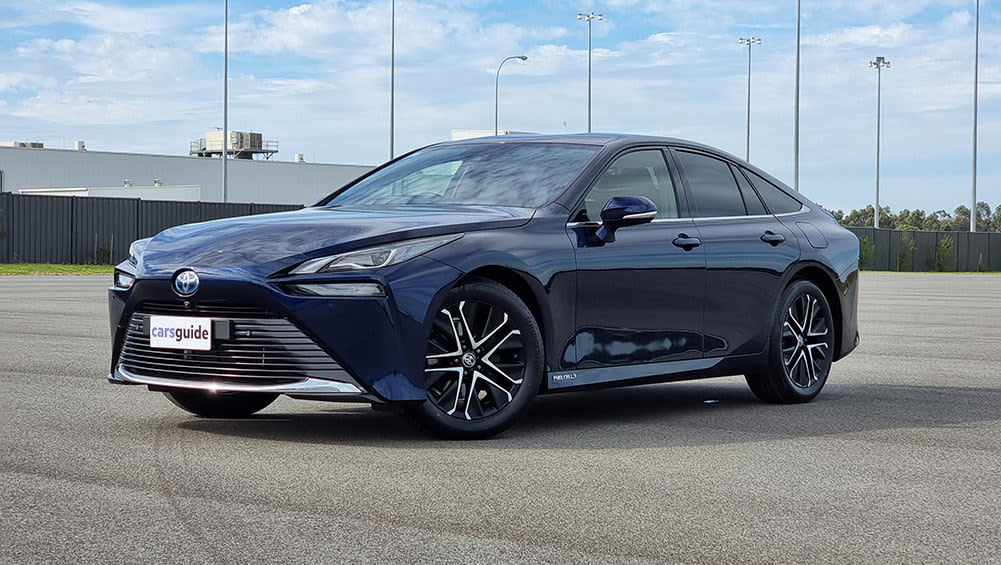paulp
Active Member
SA have announced they are now pursuing the road tax in 5 years or 30% takeup, and there will be an immediate EV $3k subsidy. Subject to parliament approval.
You can install our site as a web app on your iOS device by utilizing the Add to Home Screen feature in Safari. Please see this thread for more details on this.
Note: This feature may not be available in some browsers.
Um, a rather harsh assessment.These subsidies are laughable. Too little too late, lacking in foresight and vision, like much if not all of Australian policy.
Applicable to COVID as much as it is to EVs. No taxes of any kind on any EVs. *THAT* would be a statement. S**t or get off the pot, pollie boy.
Well, if you genuinely believe that, then you should be advocating for a rapid reduction in the number of privately owned vehicles and endorse instead a more radical transition to mass-transit for private transport needs. EVs are way better than ICE, but many argue EVs just perpetuate dependence on private transport which still consume huge amounts of resources to build and still generate significant societal costs (road building, urban sprawl, sub optimal land use, waste upon disposal, people being killed in road crashes, etc).Accelerating EV uptake should be a question of "Sachpolitik" (=non-partisan politics, issue-related politics), not pub tests or similarly ill conceived derangements of the mind.
We are trying to solve an environmental disaster caused by the masses and their mass consumption of goods that are hazardous to the environment.
The only tax dollars collected from those at the bottom of the pile is typically GST as they are unlikley to be paying income tax. The bulk of income tax in australia is paid by the ‘wealthy’, all of whom are likley to be car buyers.Um, a rather harsh assessment.
$3k is a lot to a lot of people, and way better than nothing. Restricting it to vehicles not subject to LCT solves the optics of giving tax breaks to the rich. I believe subsidies should be used sparingly as a policy tool and certainly not to advantage people who are already wealthy.
Means-testing should be generally used for any subsidy/tax break but if too messy/complicated restricted in other ways such as purchase price. Transferring tax dollars collected from those at the bottom of the pile to the already wealthy is simply obscene. There’s way too much middle- and upper-class welfare in this country.
Removal of stamp duty and replacing it with a RUC lowers the up-front cost by even more and is a clever move to protect future State Government tax streams. The Nats will start to get antsy though as EV adoption in regional areas grows, they will start agitating for ‘exemptions’ or ‘concessions’ for people who naturally drive longer distances more often. A battle for another day.
I’m no fan of the LNP but I think this is broadly good policy.
There is nothing bizarre about vested interests seeking to maintain the status quo via the opaque political donations system, jobs for life after politics etc. It has been going on for ever.Which makes Federal LNP resistance to this truly bizarre.
Curious what you think the market for hydrogen is?@Vostok I do believe efficient individual transport is far superior to any notion of public transport. Mass transit rarely goes where you want to go and when you want to go. Pretty much the only exception I've ever come across in Australia to this is the airport train from the Sydney CBD where I live to the airport. This goes door to door for me, and I'd never take the car to the airport for that reason. It does blow my mind (in an aneurism kind of way) every time I have to pay the station access fee at the airport which makes the trip uneconomical when there's two of us and a taxi would be cheaper. This ranks right up there in terms of general out of synchness with the times as the RUC for EVs before proper subsidies are in place.
Decarbonisation of the energy market is long overdue. We need to be investing into huge solar powered hydrogen industry inland where the sun always shines. But who is going to lead the way on this? Our pollies are firm in the hands of the fossil fuel industry. Our political landscape is a conflict of interest on wheels.
I can see a place for ships, trucks, trains, where you need maximum uptime of the asset, but not for cars, where it isn’t cost effective.Curious what you think the market for hydrogen is?
I can see a place for ships, trucks, trains, where you need maximum uptime of the asset, but not for cars, where it isn’t cost effective.
And where weight matters more, but volume matters less (you need 4-5x the volume compared to fuel even with compressed hydrogen)ships, trucks, trains, where you need maximum uptime of the asset,
Why am I not surprised @ZeeDoktor you think hydrogen has a future?Hydrogen has the highest energy density per mass, and burns with oxygen to produce water (vapour) as the only waste product. It will be the main fuel in the not too distant future for fuel cells. It is transportable in bulk LPG style, and can be exported rather easily that way (as opposed to electricity). Toyota have been working on this for a long time for fuel cell systems.
However by Volume it needs 4-5x the space of fuel.@GrimRe Hydrogen has the highest energy density per mass, and burns with oxygen to produce water (vapour) as the only waste product.



